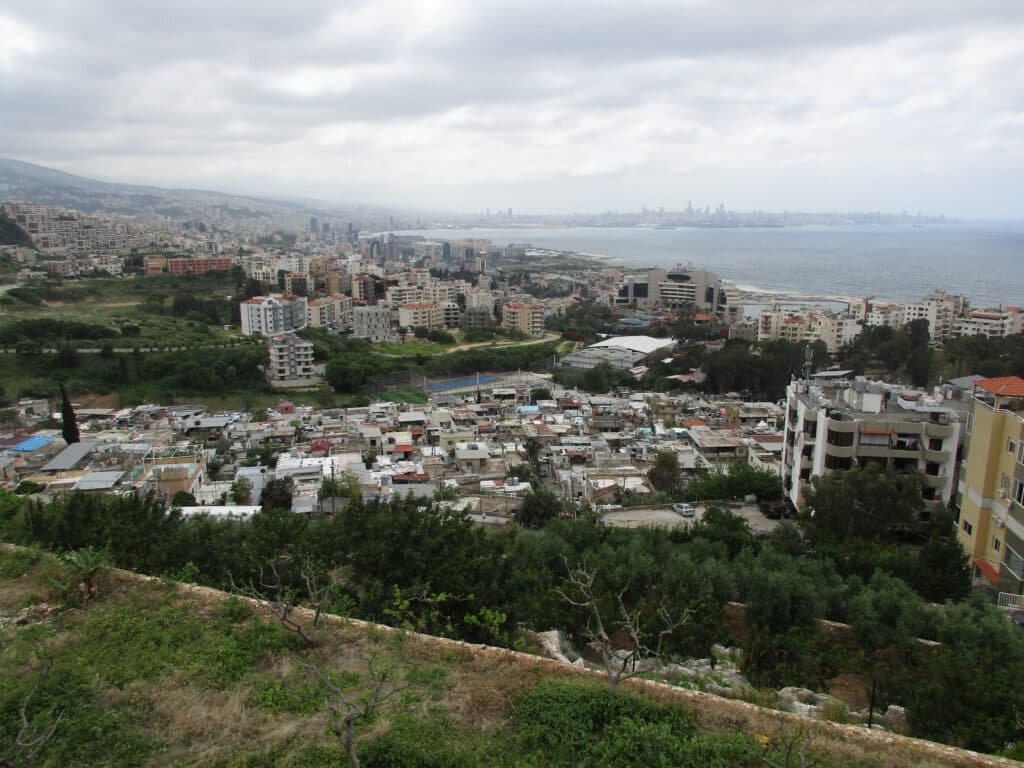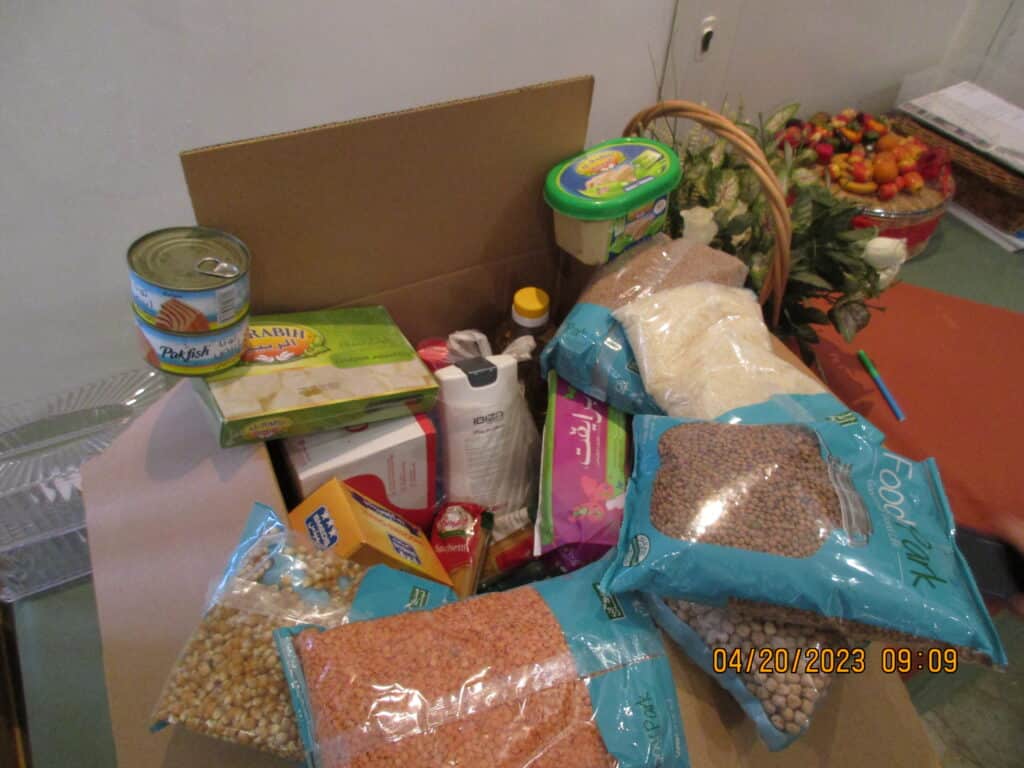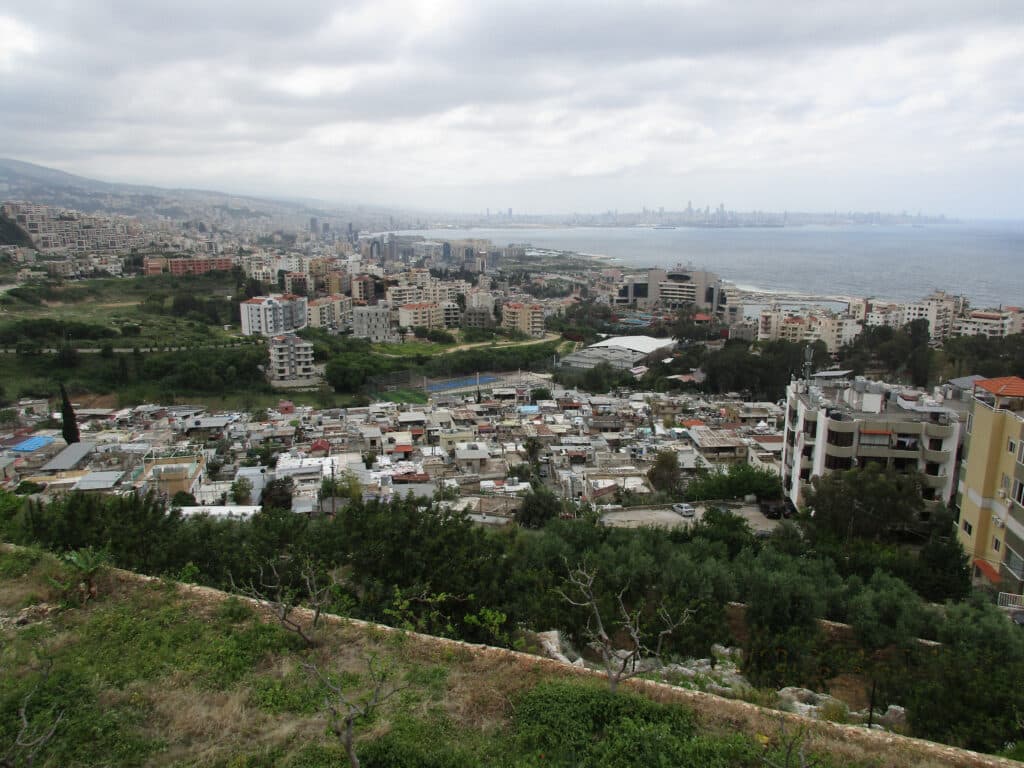A Box of Hope
Middle East Ecumenical Delegation Days 1 and 2, April 19-20, 2023
Written by Dr. Peter Makari

Our delegation of Christian Church (Disciples of Christ), United Church of Canada, and United Church of Christ leadership arrived in Beirut and began our program immediately. With about nine days to meet with partners in the region, the time promises to be full. These first two days come in the week following Eastern churches’ celebration of Easter and the last two days of Ramadan. Anticipating ‘Id al-Fitr in the midst of an economic/financial crisis and a political stalemate is difficult. Lebanon is experiencing extremely high rates of inflation, with the value of the Lebanese Lira a tiny fraction of what it was just three years ago. The Rev. Dr. Paul Haidostian, President of the Evangelical (Protestant) family of the Middle East Council of Churches and leader in the Union of Armenian Evangelical Churches in the Near East, told us that the churches continue to do a lot of good meaningful work and ministry, even as they know there are real struggles. In his overview, which served as an orientation for our delegation, he spoke of the overwhelming reality of refugees in Lebanon and the region, as well as a trend in religious intolerance related to the realities of dire poverty that people are facing. The churches in the region, and we as their partners, cannot allow their institutions that have offered an active witness to the society to fail, for if they do, congregational life will wither.
On Thursday, our first full day, we started with one of those active institutions in the region: the Joint Christian Committee, which is how the Department of Service for Palestinian Refugees is registered in Lebanon. Mrs. Sylvia Haddad is its long-time director here. A keyword that we heard repeatedly while visiting the Dbayeh Refugee Camp is empowerment. Dbayeh is a unique refugee camp in that its community is mostly Christian Palestinian, having come from just across the Lebanese border at the time of the Nakba, or “catastrophe,” in 1948 when hundreds of thousands of Palestinians were displaced from their homes and communities, and dispossessed of their property. Dbayeh residents found themselves caught in the middle of Palestinian and Lebanese tensions during Lebanon’s 15-year war from 1975-1990. Sylvia’s perseverance to overcome obstacles is inspiring and has resulted in much impressive work, even as challenges remain.
Another reality of displacement in the region is that of the Syrian population over the past decade since the war started there. The Forum for Development, Culture, and Dialogue (FDCD), a partner that works in conflict management, interfaith and intercultural dialogue, and peacebuilding in the region, has also undertaken massive efforts to provide relief to displaced Syrians. The FDCD doesn’t only attempt to meet immediate needs but seeks sustainability, empowerment, and the creation of safe spaces for people to learn about each other and overcome negative stereotypes.

In 2022, 15.6 million people in Syria needed food just to survive. During a session with the FDCD, a Syrian Presbyterian pastor with whom the FDCD works offered insight into the reality he faces as he distributes food parcels to Syrians needing humanitarian assistance. He told us, “It is not easy to speak of God’s love for us when a person is freezing or is hungry. This box of food is not just a box with food in it. It is hope. It is the two fish and five loaves.”
As the region’s ongoing emergencies are forgotten, our delegation was today again reminded of the importance of long-term relationships and accompaniment of partners who offer a witness of hope in times of despair.

